Entrepreneur Profiles
Autolab’s Turning the Tide of Auto Repair, Boosting Job Growth & Satisfaction for Colombia’s Middle Class
8 February 2018
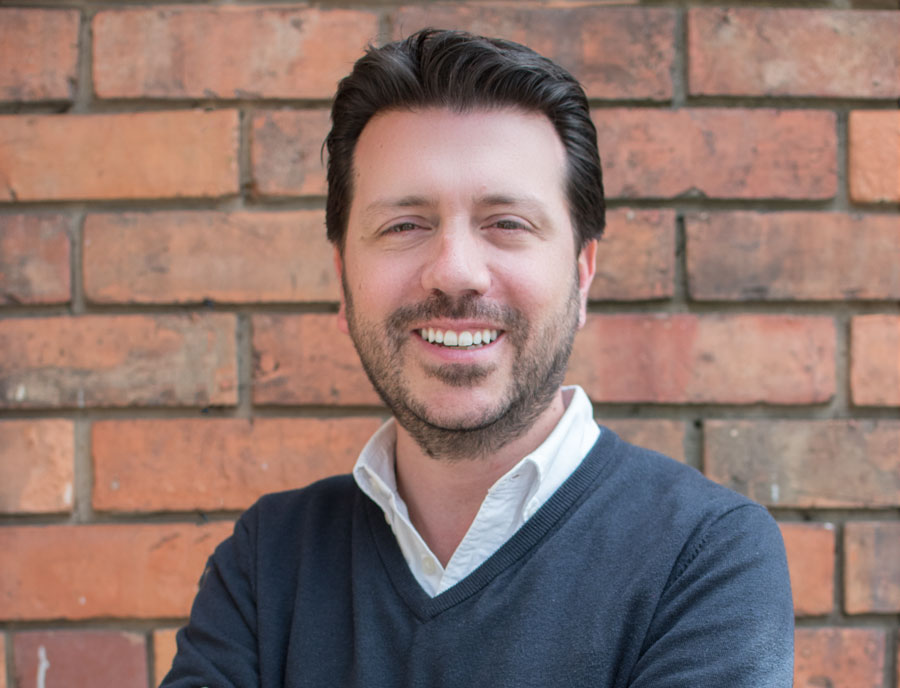
Company: Autolab
Investors: Polymath Ventures & others
Interview with: Nicolás Azcuénaga, Founder & CEO
[transcription]
[english]
An unnamed group of American, British, Colombian, Mexican, and Peruvian investors participated in the US$525k Series A for Autolab, an autoshop startup based in Colombia. Autolab was incubated at Polymath Ventures. In this interview, Founder & CEO Nicolás Azcuénaga explains how Autolab began as solution to a labor issue that quickly transformed an industry in decline into a first-rate service, disrupting a market expected to exceed $100b by 2021.
LAVCA: What is Autolab?
Nicolás Azcuénaga: Autolab was created as a solution to a labor issue. In Latin America, there’s a problem with regard to quality and stability in the type of work on offer to the working and middle classes. Workers in the auto repair industry receive particularly poor protection, and it’s a sector that employs a huge number of people.
 Generally speaking, workers in the auto repair sector experience low job satisfaction. They are demotivated and underpaid, and users receive a poor-quality service. Autolab was founded in order to resolve these two problems, i.e. to provide high-quality jobs and offer users a first-rate service.
Generally speaking, workers in the auto repair sector experience low job satisfaction. They are demotivated and underpaid, and users receive a poor-quality service. Autolab was founded in order to resolve these two problems, i.e. to provide high-quality jobs and offer users a first-rate service.
In terms of market size, the auto parts and auto repairs market in Latin America is currently valued at $76B. By the year 2021, it’s expected to exceed $100B.
LAVCA: What role has Polymath Ventures played in the Autolab story?
Nicolás Azcuénaga: When talking about the relationship between Polymath and its ventures, an analogy that works for me is the parent-child relationship. A company is vulnerable soon after its formation, and Polymath is there to provide the necessary help. Polymath helped us launch our company and create the initial infrastructure and information systems. As the company has progressed, we’ve become less reliant on Polymath, and the relationship has become more strategic. We’ve even begun to contribute to Polymath by sharing knowledge that could be useful to its other companies.
Dealing with garages and auto repairs, we run a very strong operation at Autolab. And in that regard, we’ve become the model for operations management for the entire Polymath group.
Polymath is a facilitator and an enabler of the entrepreneurial ecosystem in Latin America. Many of us here, myself included, would not have decided to become entrepreneurs otherwise. I’m here because Polymath is right by my side.
LAVCA: From a customer’s point of view, what is the problem you want to fix?
Nicolás Azcuénaga: In general, the middle class receives a poor level of service in Latin America. Those who enjoy a high level of purchasing power have good options, but options are limited for middle-class people and the auto repair industry is no exception. So, what would be a typical situation in the auto repair industry? Well, car owners have two options, one at either end of the scale. They can either go to the dealership, which will be reliable but expensive, or they can go to a cheaper, independent repair shop, where the service and auto parts will be of questionable quality.

Autolab represents a sophisticated intermediate option between dealer-run and independent auto repair shops, and it provides customers with a first-class service at affordable prices. What’s more, we work with multiple makes of car. We offer services ranging from oil changes to bodywork and paintwork to engine repairs, and for every make of car.
And all these services come with complete peace of mind, convenient locations, cleanliness, respect, orderliness, transparency, good communications, etc.
LAVCA: Tell us about the journey you’ve made.
Nicolás Azcuénaga: We opened our doors in the middle of August 2014. And in 2015, Autolab had a turnover of just over one billion Colombian pesos. We had a team of 15 people. In 2016 — 12 months later — Autolab ended the year with sales of over 2.1 billion pesos and a team of more than 35 people. We doubled our figures in almost every aspect. We ended 2017 with a team of over 70 people and sales in excess of COP$3.1b.
As regards fundraising, in the first quarter of 2015 we raised US$450K, with a valuation cap of US$3M. 12 months later, in the first quarter of 2016, we closed a US$307K round with a valuation cap of US$6M. In October 2017, we closed the first half of our US$525K Series A round with a valuation cap of US$8.5M, and we are now making the second closing of the round for an additional US$425K.
LAVCA: Who are the main users of your platform?
Nicolás Azcuénaga: We have three types of clients, who correspond to three different products. The first of these is what we call the retail product and is aimed at private individuals — like your mom your aunt, your cousin, etc. — who have a car and need someone to service it.
The second type of user is the corporate user, or what we call B2B, with small car fleets. These are companies with, say, 10, 12 or 15 cars belonging to the managerial staff, the vice chairmen and the managers, and we service these companies’ entire car fleets.
 And we have a third type of client, corresponding to public service vehicles. We launched this product recently and have started to work with public service vehicles, specifically taxis. We service them on a different site. These three types of users have quite different needs and expectations.
And we have a third type of client, corresponding to public service vehicles. We launched this product recently and have started to work with public service vehicles, specifically taxis. We service them on a different site. These three types of users have quite different needs and expectations.
LAVCA: Who are your competitors?
Nicolás Azcuénaga: Currently, we don’t have any direct competitors in this category. In a way, we’re inventing this category of a multiple-make auto repair shop, one that’s not affiliated to a single, exclusive make of the car and that offers an expert service and intermediate alternative to the two traditional options. Having said all that, who would I say are our indirect competitors? More than anyone else, I would have to say it’s the independent repair shops.
LAVCA: How are you using technology to increase the efficiency and productivity of your business?
Nicolás Azcuénaga: We’ve invested heavily in technology. So much so that we design and develop our own operations systems. So, how do we view the role of technology? We’ve learned that this business – auto repair shops – is about doing two things really well. The first is to generate and maintain trust. We’re a machine for generating and maintaining the trust of our users, and we always assume that they initially view auto repair shops with a degree of distrust.
The second thing we need to do really well is to manage information. This begins with the advertising that potential customers see on Facebook or Instagram and doesn’t end until those customers leave the repair shop satisfied with the service they have received. The number of information contact and transfer points is huge, whether they’re between the advertising and the sales advisor who answers the phone, or between that same sales advisor and the moment an appointment is scheduled. And afterward, when the customer arrives at the repair shop for the first time and hands over their car, when you call them to provide them with tracking information on their car, when you tell them it would be advisable to take a look at a few other things, when they request an additional service, when they come to pay the bill, and when they leave. It’s a very long chain. So, generating and maintaining trust and managing the relevant information are the two main things.
That said, technology plays an essential role in both. With our platform, we can be sure about our information and confident that we’re minimizing the errors at each of the interfaces mentioned. Every interaction with the client is recorded. What were they told? What were they promised? What commitment has been made? What is the agreed delivery time? Etc.
LAVCA: How do you explain the opportunity to your investors?
 Nicolás Azcuénaga: The opportunity is very easy to explain. For a start, 98% of the investors I’ve spoken to are users of Autolab, and they have an immediate connection with an understanding of the need. And what’s most interesting is that it’s the same with all our investors, whether they’re Colombian, Peruvian, Mexican, American or British. They all experience or have experienced problems with the various auto repair services, and they realize there is a profound need for an alternative such as Autolab.
Nicolás Azcuénaga: The opportunity is very easy to explain. For a start, 98% of the investors I’ve spoken to are users of Autolab, and they have an immediate connection with an understanding of the need. And what’s most interesting is that it’s the same with all our investors, whether they’re Colombian, Peruvian, Mexican, American or British. They all experience or have experienced problems with the various auto repair services, and they realize there is a profound need for an alternative such as Autolab.
Autolab operates like a virtuous triangle where one of the vertices is represented by a first-class team of auto repair shop experts. There aren’t many workshops in Latin America that have as good a team as Autolab. And combined with this team are state-of-the-art methodologies and frameworks from different sectors. So, for example, the COO at Autolab, Salvador Cepeda, has a background in the consultancy industry and previously worked at McKenzie. And the CTO at Autolab also has a background in the technology business. He had his own technology startup, as well as working in technological development for a multinational. I myself am from the oil industry, and you’ll find people across the whole team who likewise are from different industries.
A business is not the product of necessity and opportunity alone. It’s the combination of how we do things that provide us with the unique opportunity to create an exponential solution.
LAVCA: What are the next steps for Autolab?
Nicolás Azcuénaga: I would divide the future of Autolab into three important stages. The first step is to secure our cash flow while continuing to perfect the operating model that we have up and running now. Over the next three years, we’ll continue to validate the proven operating model we have here in Bogotá and see if it can work in other regions of Latin America. We’re going to start operations in different cities in Colombia and in other Latin American countries. Among other things, we’ll learn how to operate in these other locations and gain an understanding of labor market and consumer idiosyncrasies, as well as the quality of supplies. Once we’ve put the finishing touches on our productive unit model, we’ll enter the third stage: explosive growth and Autolabs all over Latin America.
[/english]
[spanish]
Un grupo anónimo de inversores estadounidenses, británicos, colombianos, mexicanos y peruanos participó en la Serie A de US$525k de Autolab, una startup de autoreparaciones con sede en Colombia. Autolab se incubó en Polymath Ventures. En esta entrevista con el fundador y CEO Nicolás Azcuénaga FILL IN
LAVCA: ¿Qué es Autolab y cómo nace?
Nicolás Azcuénaga: Autolab nace como una solución a un problema de empleo. Hay un problema de calidad y estabilidad en el empleo que se le está ofreciendo a las clases baja y media en LatAm, y la industria de auto reparaciones en particular está muy desprotegida de materia laboral y emplea a un número gigante de personas.
Por lo general el trabajador en la industria de auto reparos no está feliz en su trabajo, está desmotivado y no tienen una compensación justa, y quien recibe ese servicio, recibe un servicio de pobre calidad. Autolab nace para solucionar los dos problemas: prestando empleos de buena calidad y ofreciendo un servicio excelente a los usuarios.
En términos del tamaño de mercado, el mercado de auto partes y auto reparaciones en Latinoamérica es de $76B, y se espera que supere los $100B para el el año 2021.
LAVCA: ¿Cuál ha sido el rol de Polymath Ventures en Autolab?
Nicolás Azcuénaga: Cuando hablamos de la relación entre Polymath y los ventures, utilizó una analogía que a mí me funciona bien y es, la relación es de papás a hijos. Apenas nace la compañía, la compañía es indefensa y necesita de ayuda, y ahí está Polymath. Polymath nos ayuda a lanzar la compañía, a generar los primeros sistemas de información y la infraestructura inicial. A medida en la que la compañía evoluciona, necesitamos menos de Polymath, y la relación pasa a ser más estratégica, e inclusive empezamos a contribuir de vuelta a Polymath, compartiendo conocimientos que pueden serle útiles a sus otras compañías.
En Autolab, por tratarse de talleres y de auto reparación, tenemos operaciones muy fuertes. Desde ese punto de vista, nos hemos vuelto en el referente de manejo de operaciones de todo el grupo de Polymath.
Polymath es un facilitador y un habilitador del ecosistema de emprendimiento en Latinoamérica. Muchos de nosotros, inclusive yo, de otra forma no habríamos decidido ser emprendedores. Estoy aquí porque Polymath está al lado mío.
LAVCA: Del lado del cliente, ¿cuál es el problema que quieren resolver?
Nicolás Azcuénaga: En Latinoamérica -en general- la clase media está mal atendida. Hay buenas opciones para personas con alto poder adquisitivo, pero la clase media tiene opciones limitadas y la industria de auto reparaciones, no es la excepción. ¿Cuál es la típica situación de la industria de reparaciones? El dueño de un carro tiene dos opciones extremas: va al concesionario, que es confiable, pero costoso; o va a un taller informal más barato, pero de calidad del servicio y de las partes es cuestionable.
Autolab es la opción sofisticada e intermedia, entre los talleres concesionarios y los talleres informales en la que el cliente encuentra servicio de primera calidad, a precios más accesibles. Además, somos multimarca. Ofrecemos desde un cambio de aceite hasta la reparación de un motor, incluyendo latonería y pintura, para todas las marcas.
Todo esto con confianza absoluta, ubicaciones convenientes, limpieza, respeto, orden, transparencia, facilidad en la comunicación, etcétera.
Cuéntanos sobre la tracción que has tenido.
Abrimos las puertas a mediados de agosto del 2014. En el 2015, Autolab vendió un poco más de 1000 millones de pesos colombianos. Éramos 15 personas en el equipo. En el año 2016 -12 meses después-, Autolab cerró con más de 2100 millones de pesos en ventas y con un equipo de más de 35 personas. Nos duplicamos en casi que todos los sentidos. Cerramos 2017 con un equipo de más de 70 personas y vamos a superar los 3100 millones de pesos ventas.
Desde el punto de vista de fundraising, en el primer trimestre del año 2015, levantamos US$450K con un cap de valoración de US$3M. 12 meses después, en el primer trimestre del 2016, cerramos una ronda de US$307K con un cap de valoración de US$6M. En octubre de 2017 cerramos la primera mitad de nuestra serie A, por US$525K con un cap de valoración de US$8.5M, y ahora estamos haciendo el segundo cierre de la ronda por US$425K adicionales.
LAVCA: ¿Quiénes son los principales usuarios de la plataforma?
Nicolás Azcuénaga: Tenemos tres tipos de clientes, que representan tres productos diferentes. El primero, es lo que llamamos el producto retail y esto son personas naturales; estos son: mi mamá, mi tía, mi primo, que tienen un carro y necesitan quien les atienda su carro.
El segundo tipo de usuario, es el usuario corporativo o lo que llamamos B2B, flotas pequeñas y entonces estos son, una empresa tiene 10, 12, 15 carros, los 15 carros de la gerencia, de sus vicepresidentes y sus gerentes, y nosotros les atendemos toda la flota a esas compañías.
Y tenemos un tercer tipo de cliente, que son carros de servicio público, hace poco lanzamos este producto y estamos arrancando a atender carros de servicio público, taxis específicamente y los atendemos en otro sitio. Son tres usuarios con necesidades bien diferentes y con expectativas bien diferentes.
LAVCA: ¿Quiénes son su competencia?
Nicolás Azcuénaga: Hoy en día, no tenemos competencia directa en esta categoría. Nosotros, de alguna manera, estamos inventando esta categoría de un taller multimarca, multiservicio que no está afiliado a ninguna marca exclusivamente y que ofrece un servicio sofisticado, una alternativa intermedia a las opciones tradicionales. Ahora bien, ¿quién es nuestra competencia indirecta? Yo diría que los talleres informales, más que todo.
LAVCA: ¿Cómo están aprovechando de la tecnología para hacer del negocio más eficiente y productivo?
Nicolás Azcuénaga: Hemos invertido mucho en tecnología. Tanto, que nuestro sistema de operaciones lo diseñamos y desarrollamos nosotros. Entonces, ¿cómo vemos el rol de la tecnología? Hemos aprendido que este negocio -el de los talleres- se define y se trata de hacer dos cosas muy bien. La primera, es: crear y mantener confianza. Somos una máquina de crear y mantener confianza con nuestros usuarios, pensando siempre en que el usuario del taller arranca en negativo con respecto a la confianza hacia los talleres.
La segundo que debemos hacer muy bien: manejar la información. Esto arranca desde la publicidad que ve un cliente potencial en Facebook o en Instagram sobre Autolab, hasta el momento en que ese cliente sale satisfecho del taller después de haber realizado un servicio. La cantidad de puntos de contacto y de transferencia de información es enorme, sea entre la publicidad y el asesor de ventas que le contesta el teléfono; entre ese asesor de ventas y el momento en que agenda la cita. Después cuando el cliente llega al taller por primera vez y le reciben el carro, cuando llaman y le hacen seguimiento, cuando le avisan que hay temas adicionales que sería deseable mirar, cuando solicita un servicio adicional, cuando viene y paga la factura, y cuando sale. La cadena es larguísima. Entonces, crear y mantener confianza, y manejar la información.
Habiendo dicho eso, la tecnología juega un rol fundamental en las dos. Nuestra plataforma nos permite estar seguros de la información y de que minimicemos los errores en cada una de estas interfaces. Cada interacción con el cliente queda registrada: ¿qué se le dijo? ¿qué se le prometió? ¿cuál es el compromiso? ¿cuál es la hora de entrega acordada? Etcétera.
LAVCA: ¿Cómo explicas la oportunidad a tus inversionistas?
Nicolás Azcuénaga: La oportunidad se explica súper fácil; empezando porque el 98% de los inversionistas con los que he hablado son usuarios de Autolab y entienden y se conectan inmediatamente con la necesidad. Y lo que es más interesante, me pasa con todos los inversionistas: los colombianos, los peruanos, los mexicanos, los americanos y los británicos también, por igual, todos tienen o han tenido problemas con el servicio de auto reparaciones, y se dan cuenta de la profunda necesidad por una alternativa como Autolab.
Autolab funciona como un triángulo virtuoso en donde en una punta hay un equipo sofisticado de primera categoría en tema de talleres, no hay muchos talleres en Latinoamérica que tengan un equipo como el que tiene Autolab. Combinado con metodologías y frameworks de última generación, que vienen de diferentes industrias. Entonces, por ejemplo, el COO de Autolab, Salvador Cepeda, viene de la industria de la consultoría, él es ex McKenzie. El CTO de Autolab viene de ser empresario también de tecnología, de tener su propio startup de tecnología y de trabajar para una multinacional también, haciendo desarrollos tecnológicos. Yo vengo de la industria petrolera y así sucesivamente tú encuentras gente de diferentes industrias en todo el equipo.
La necesidad y la oportunidad por si solas no hacen un negocio, sino que la combinación de cómo lo estamos haciendo, nos da una oportunidad única de generar una solución exponencial.
LAVCA: ¿Próximos pasos para Autolab?
Nicolás Azcuénaga: Puedo dividir el futuro de Autolab en tres grandes momentos. Primer momento es asegurar el flujo de caja y seguir afinando este modelo operativo que hoy ya está montado. Durante los siguientes tres años iremos a validar el modelo operativo que ya está aquí en Bogotá aprobado, que este modelo funcione en diferentes geografías de Latinoamérica. Vamos a abrir operaciones en diferentes ciudades de Colombia y de Latinoamérica, y aprender a operar en esos sitios y entender la idiosincrasia laboral, la idiosincrasia del consumidor y también la calidad de suministros, entre otras cosas. Una vez que tengamos el modelo de la unidad productiva muy afinado, viene la tercera etapa: crecimiento explosivo y llenar a Latinoamérica de Autolabs.
[/spanish]
[portuguese]
This article is not available in Portuguese. Please see English and Spanish versions.
[/portuguese]
[/transcription]
You may be interested in...
-
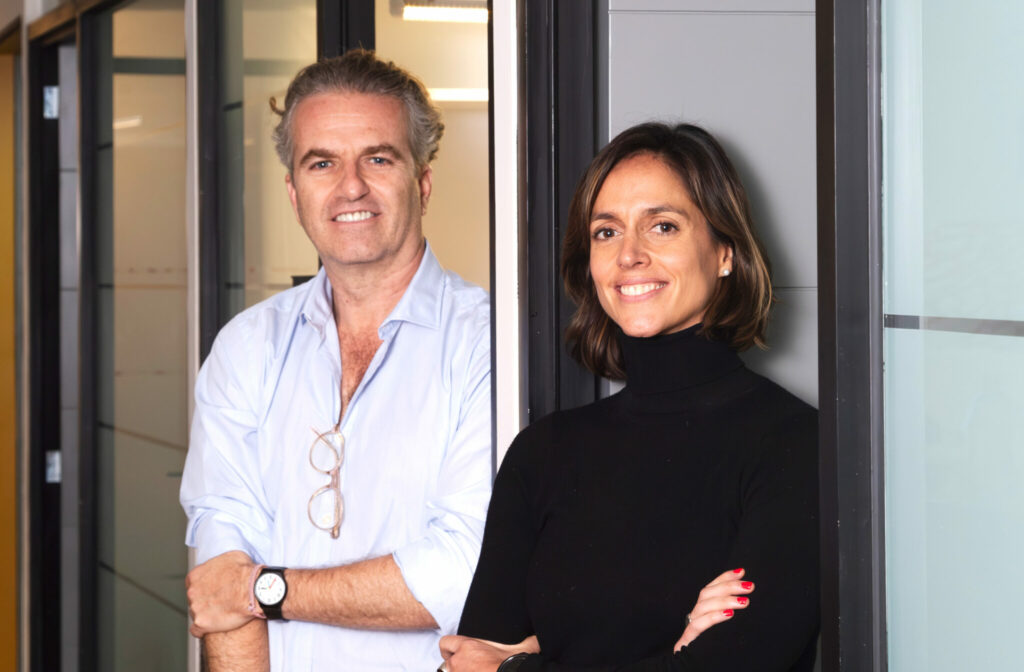
Is AI a Thing in Latin America? In Conversation with Hi Ventures
LAVCA sits down with Hi Venture to discuss their evolving thesis and vision for...
-
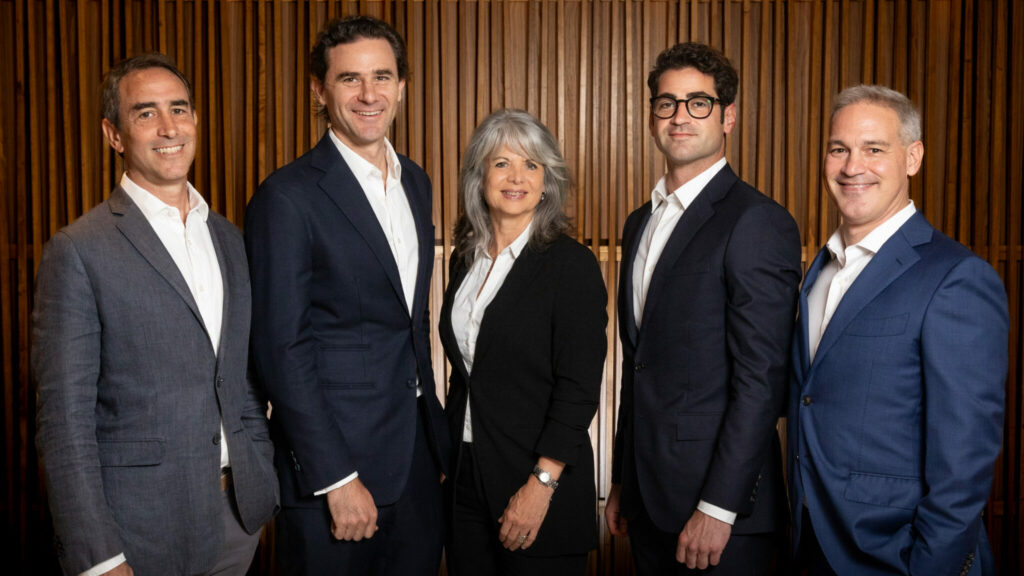
The Future of B2B Startup Investing in LatAm: In Conversation with NXTP
NXTP Ventures recently reached a USD98m final close for NXTP Fund III, its third...
-
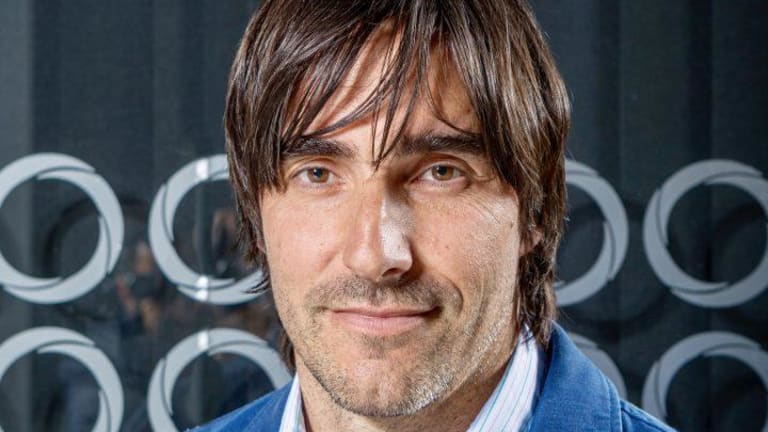
A 20-Year Journey: An Interview with Technisys CEO Miguel Santos
Company: Technisys Investors: KASZEK, Dalus Capital, Riverwood Capital Interview...
-
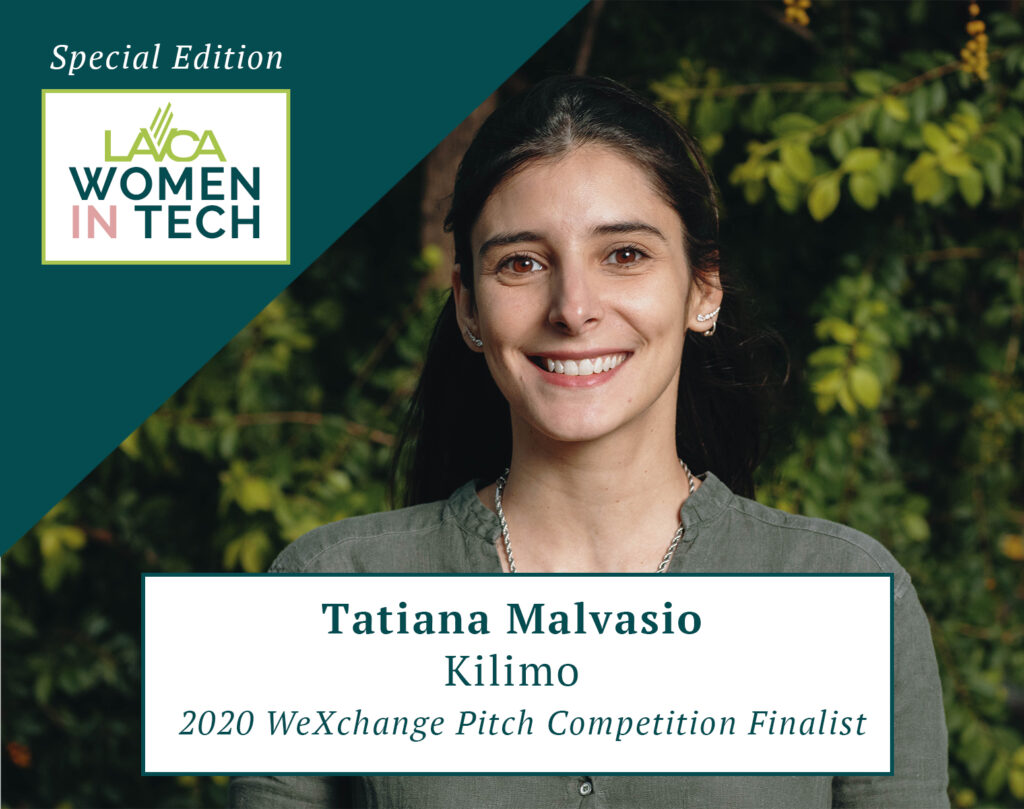
Satellite Analytics & Irrigation Systems: Interview with Kilimo COO Tatiana Malvasio
Company: Kilimo Investors: NXTP Ventures, Alaya Capital, The Yield Lab, Xpand...